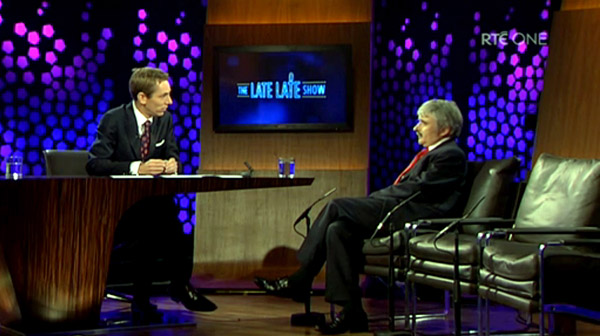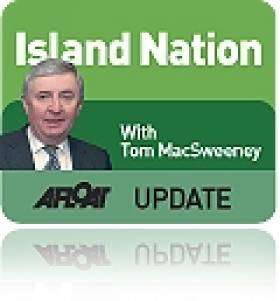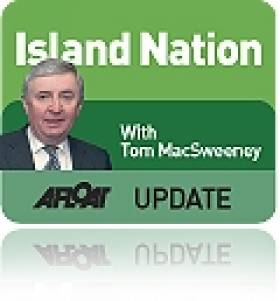Displaying items by tag: Willie O'Dea
Now There is None
What a magnificent sight it was as the three Tall Ships, each flying the Tricolour, headed the fleet of the gracious ships of sail from all over the world.
How different it will be in July when the world's Tall Ships again parade down the Suir. There will be no Irish national sailing ship to lead the parade. A number of private Irish entries are expected at Waterford from June 30–July 3 amongst the 70 vessels from around the world when the city has the honour starting the race. In 2005 about half-a-million people visited the city while the Tall Ships were there.
The lack of a national tall ship is another example of governmental maritime neglect, directly due to the decision of former Defence Minister Willie O'Dea, T.D. After the sinking of ASGARD he publicly committed the Government to its replacement, but after receiving insurance compensation money for its loss, he put the money into coffers of the Department of Finance and closed down the national sail training programme. There was a big difference between what he promised and what he did, a disregard for the maritime sphere which it is hard to forgive. I also recall how former Taoiseach Bertie Ahern did not visit Waterford during the 2005 race, when it was the biggest tourist event in the country. When I broadcast my report expressing astonishment at this snub government sources and Fianna Fail didn't like it. Truth in the news can be painful!
The organisers made contacts about the DUNBRODY, which continues to earn income at the New Ross quayside where it is moored as a tourist attraction and with the JEANIE JOHNSTON, moored at the Dublin Docklands.
However, neither will be taking part, the organisers have confirmed, tough they said that it was expected that about 100 young Irish trainees would sail aboard tall ships in the race, half of them with funding support from local authority, business and other sources. A group of Irish sailors have also indicated they are making arrangements to charter a UK-registered vessel the JOHANNA LUCRETIA for the event.
Once again the Irish Government has sunk to the bottom where maritime matters are concerned.
It was announced this week in Waterford that Fáilte Ireland has made a significant financial and marketing commitment to this year's event, though the financial figure was not disclosed .A free festival programme will feature street acts; comedy; international and home-grown artists, nightly fireworks, an artisan food village and an atmosphere which the organisers say "will thrill people of all ages and nationalities."
• This article is reprinted by permission of the EVENING ECHO newspaper, Cork, where Tom MacSweeney writes maritime columns twice weekly. Evening Echo website: www.eecho.ie
O'Dea Escapes on Late Late Show
Willie O'Dea appeared on RTE's Late Late Show on September 10. The following day, September 11, was a major day in Irish maritime history - the second anniversary of the sinking of the national sail training vessel, Asgard. O'Dea did not have a difficult time on the Late Late Show which did not pursue an important aspect of his career – his decision to abandon the national sail training programme.
Why is it that the Dublin-based national media have such little awareness of the maritime sphere? How could the researchers on the Late Late Show, promoted as a top RTE programme, ignore Mr.O'Dea's actions and challenge his misleading public statements on this issue?

Ryan Tubridy interviews Willie O'Dea on the Late Late Show
He is on public record as Minister in pledging the replacement of Asgard. But while he said one thing, he did another, though attempting to pass the responsibility sideways to the Asgard committee, which, of course, he had appointed and which failed to challenge him. Should Ministers not deliver on what they publicly commit themselves to? Willie O'Dea handed over the compensation money for the sinking of the national sail training vessel to the Department of Finance, a callous abandonment of the maritime traditions of this nation. Over 12,000 young people had been given sail training courses aboard Asgard during its 25 years of operation.
Now Ireland does not have a national sail training vessel, nor a national sail training programme. For a maritime nation, this is disgraceful.
Next year the international Tall Ships Race returns to Ireland. It will be hosted again in Waterford, which will have the honour of being the port to start the event. This will also be a great honour for Ireland.
But remember that when the Tall Ships Race was last in Waterford, in 2005, then Taoiseach Bertie Ahern never visited the event. That, in my view, was an insult to the occasion and I said so at the time, which did not go down well with the Government. But it is not my concern to be popular with a Government which has dealt with the sail training programme in an appalling way.
Nor am I concerned to be popular with my former employers, RTE. The Late Late Show failed to pursue O'Dea on a crucial maritime issue, which should have been its public service duty on a date and an occasion particularly relevant to the marine sector.
• This article is reprinted by permission of the Cork Evening Echo in which Tom MacSweeney writes maritime columns twice weekly. Evening Echo website: www.eecho.ie






























































